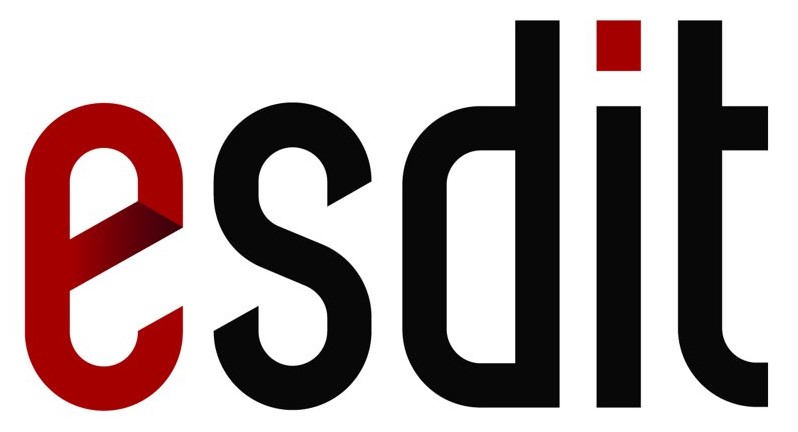ESDiT Reseach Lines
Research in the Esdit programme is structured along four research lines. The first three lines focus on core domains that are impacted by socially disruptive technologies (SDTs), namely human beings, nature, and society. For each of these, we study how they are affected by the new generation of SDTs and how key philosophical and ethical concepts that relate to them are being challenged. The fourth line brings together the results of the other three. The goal is to develop an integrated assessment of SDTs and the moral frameworks needed to guide their development..

Art
This line studies how the ethics and philosophy of technology can be innovated through the development of new collaborative, transdisciplinary approaches between philosophers and artists. In this way, it contributes to program objective (4) on technology ethics and multi- and transdisciplinarity; How can we innovate the ethics and philosophy of technology by developing new collaborative approaches between philosophers, engineers, social scientists, policy makers, designers, and artists, aimed at improved philosophical and ethical analysis and responsible innovation?

Conceptual Disruption
One of the five objectives of ESDiT is (2) to gain a better understanding of conceptual disruption as a result of Socially Disruptive Technologies (SDTs) and how we can deal with those disruptions. What are the key philosophical and ethical concepts that are challenged by SDTs? What reassessments, revisions, and innovations are needed in response, taking into account philosophical insights from non-Western traditions? To answer these questions, this research line focuses on theories, methods and case studies of conceptual disruption and conceptual engineering.

Democracy, Justice & Solidarity
This research line focuses on the topics of democracy, justice and solidarity in relation to Socially Disruptive Technologies (SDTs). We try to map how the changes in social relations, social structures, social institutions, and democratic practices, brought about by SDTs, affects the basic concepts of social and political philosophy. This research line contributes to ESDiT program objective (1) to understand the disruptive effects of 21st century SDTs and objective (2) to understand conceptual disruption.

Human Nature, Agency & Autonomy
This research line investigates how and to what extent Socially Disruptive Technologies (SDTs) have implications with regard to the human condition. More in particular, it focuses on the study of human nature, agency and autonomy in relation to SDTs. It contributes to two of the five objectives of the ESDiT program, namely to understand (1) to understanding the disruptive effects of 21st century SDTs and (2) to understand conceptual disruption.

Intercultural Philosophy
This line studies how non-western philosophy can help us to provide (different and better) answers, to the research questions of ESDiT. This line contributes to all program objectives, but especially to objectives (2) on conceptual disruption, (3) on new methods of ethics and (5) on implications for practical philosophy.

Nature & Sustainability
In this research line, we aim to go beyond traditional discussions about the normative status of nature, e.g., whether there is something intrinsically good or desirable in nature and something objectionable in changing nature. It contributes to program objective (1) to understanding the disruptive effects of 21st century Socially Disruptive Technologies and (2) to understand conceptual disruption.

New Methods for Ethics
One of the five objectives of the ESDiT program is (3) to develop new approaches for ethical assessment and guidance of Socially Disruptive Technologies (SDTs). This research makes a central contribution to that objective by working on new methods of ethics. It also considers how these can be translated to practical philosophy, as well as ways in which ethics of technology and mainstream practical philosophy can interact. As such, this research line also contributes to ESDiT objective (5) to innovate practical philosophy.

STEM (Science, Technology, Engineering & Mathematics)
This line studies how the ethics and philosophy of technology can be innovated through the development of new collaborative, transdisciplinary approaches between philosophers and engineers. In this way, it contributes to program objective (4) on Technology ethics and multi- and transdisciplinarity; How can we innovate the ethics and philosophy of technology by developing new collaborative approaches between philosophers, engineers, social scientists, policy makers, designers, and artists, aimed at improved philosophical and ethical analysis and responsible innovation?

Wellbeing, Emotions & Health
This research line investigates how and to what extent Socially Disruptive Technologies (SDTs) have implications with regard to the human condition. More in particular, we focus on well-being, emotions and health in relation to SDTs. This research line contributes to program objective (1) to understand the disruptive effects of 21st century SDTs and (2) to understand conceptual disruption.
No results found.
